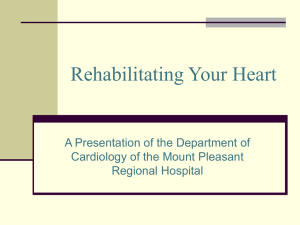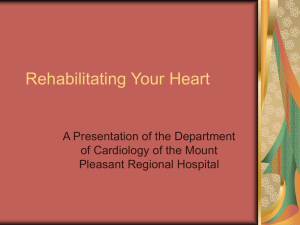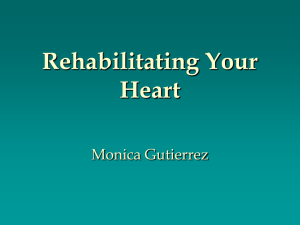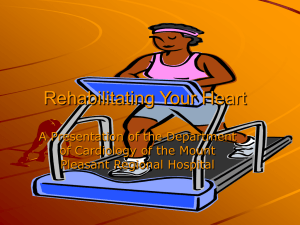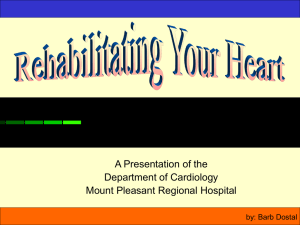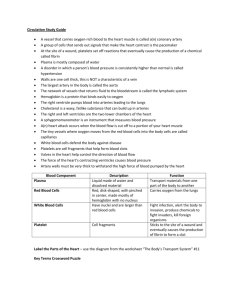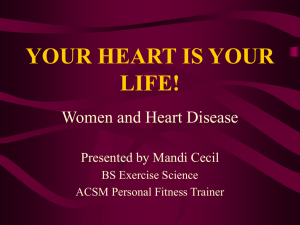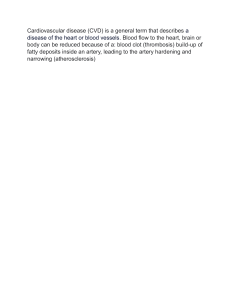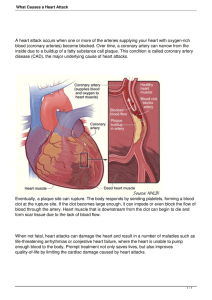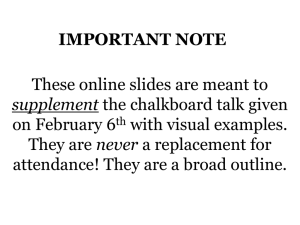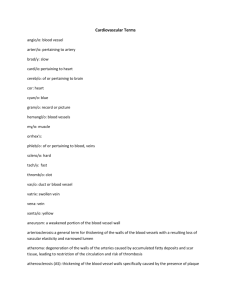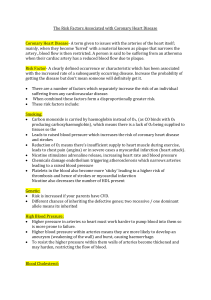Circulatory System 2
advertisement
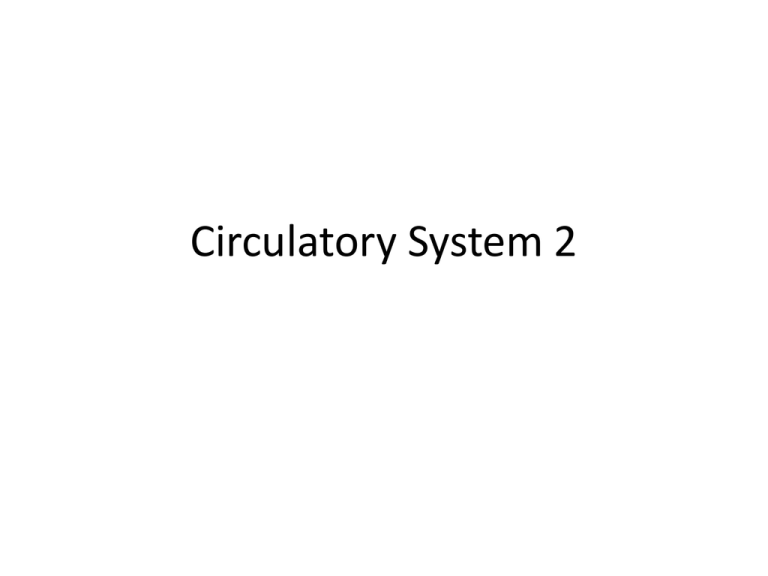
Circulatory System 2 Blood Pressure • • The force of blood on walls of blood vessels Blood pressure highest in arteries and lowest in veins – A rise and fall of pressure occurs with heartbeat – Normal pulse rates are 60-100 beats per minute for adults • Measured using two numbers – Systolic measures pressure caused by ventricles contracting and pushing blood out of heart – Diastolic measures pressure that occurs as ventricles fill with blood • Your brain tries to keep B.P constant. Your brain sends messages to your heart to raise or lower your blood pressure by speeding up or slowing down your heart rate Cardiovascular Disease • Leading cause of death in the U.S.A • Atherosclerosis fatty deposits build up on artery walls and clog arteries – can occur in any artery, but especially dangerous in coronary arteries • If coronary artery blocked, heart attack can happen • Hypertension high blood pressure – when blood pressure is high, heart must work harder to keep blood flowing – Can be caused by atherosclerosis Heart Disease Prevention • Follow a healthy diet – Avoid excess salt, cholesterol, and saturated fats • Eliminate excess weight (it forces heart to pump faster) • EXERCISE! • Strengthens heart and lungs, controls cholesterol and blood pressure • Manage stress, which causes heart to pump faster • Avoid smoking, which makes heart beat faster
